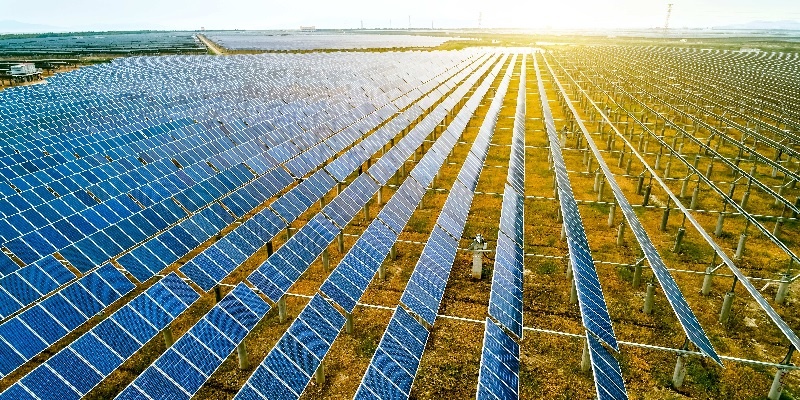Stepping up green energy through direct purchase deals
 |
| Stepping up green energy through direct purchase deals, illustration photo |
One week after the prime minister offered strong commitments towards the energy transition at the COP26 climate summit, Minister of Industry and Trade Nguyen Hong Dien reported to the National Assembly that a direct power purchase agreement (DPPA) is being urgently implemented as the ministry (MoIT) has asked the government for permission to pilot the mechanism from now until 2025.
“The MoIT is urgently building a competitive electricity retail market. In particular, the implementation of the DPPA between the power plant and electricity users is the first step in implementing a competitive electricity retail market in our country,” Dien said.
The mechanism is an enormous opportunity for solar and wind developers to mobilise private capital to build major new solar and wind farms. Over 30 large international and domestic businesses represented by the Renewable Energy Buyers Alliance Vietnam – including Nike, Adidas, and Puma – are supporting this effort in order to meet their sustainability goals, and emphasised the critical need for accurate power market data to support low-risk transactions to power the clean energy revolution in Vietnam.
Nike’s chief sustainability officer, Noel Kinder, who had a meeting with the Vietnamese Prime Minister Pham Minh Chinh at COP26, said the group is working towards its sustainability targets, including powering its owned and operated facilities worldwide with 100 per cent renewable energy by 2025.
Home of many global groups, Vietnam plays an important role in supply chains. Thus the DPPA, which has been sought after by top names such as H&M, Adidas, and HEINEKEN, would promote private sector investment as well as meet green targets. Meanwhile, these groups are under pressure from shareholders and customers to reduce emissions in their supply chain.
Nearly 30 leading international companies and organisations signed a declaration of support for a DPPA in Vietnam in 2019. However, industry insiders said that the draft has not yet set a floor price for negotiation between the parties. Electricity users want to buy electricity at a low price, but conversely, renewable generators do not want to sell at a lower price than the selling price to state-run Electricity of Vietnam to ensure business efficiency.
Under the draft, the pilot programme is planned for nationwide rollout and a total maximum capacity of selected wind or solar projects of 1,000MW. Should this number exceed the number of applications for this scheme, the MoIT will select participants (both consumers and renewable energy generation companies) on a first-come, first-served basis.
Vietnam aims to double the installed wind and solar generation capacity to 31-38GW by 2030. Thanks to feed-in tariffs and other policies, Vietnam is among the top three nations leading the shift to renewable energy in Asia-Pacific, according to the latest research from London-based information provider IHS Markit. The country saw a staggering eight-fold increase in rooftop solar in 2020 compared to the previous year, driven by the attractive tariffs, tax incentives, and a land-lease exemption scheme.
Meanwhile, Minister Dien said that the policy for the wind sector will transfer to an auction step after applying the FiT mechanism set at 8.5 US cents per kWh for all projects achieving commercial operations before November 1 this year.
It was deemed an impressive result after the rush to invest in wind to take advantage of the government’s incentives before transitioning to a competitive auction scheme as wind projects totalling nearly 4GW have achieved commercial operations in time for the feed-in tariff before October 31.
What the stars mean:
★ Poor ★ ★ Promising ★★★ Good ★★★★ Very good ★★★★★ Exceptional
Themes: COP26 - Together for Our Planet
Related Contents
Latest News
More News
- $100 million initiative launched to protect forests and boost rural incomes (January 30, 2026 | 15:18)
- Trung Nam-Sideros River consortium wins bid for LNG venture (January 30, 2026 | 11:16)
- Vietnam moves towards market-based fuel management with E10 rollout (January 30, 2026 | 11:10)
- Envision Energy, REE Group partner on 128MW wind projects (January 30, 2026 | 10:58)
- Vingroup consults on carbon credits for electric vehicle charging network (January 28, 2026 | 11:04)
- Bac Ai Pumped Storage Hydropower Plant to enter peak construction phase (January 27, 2026 | 08:00)
- ASEAN could scale up sustainable aviation fuel by 2050 (January 24, 2026 | 10:19)
- 64,000 hectares of sea allocated for offshore wind surveys (January 22, 2026 | 20:23)
- EVN secures financing for Quang Trach II LNG power plant (January 17, 2026 | 15:55)
- PC1 teams up with DENZAI on regional wind projects (January 16, 2026 | 21:18)

 Tag:
Tag:




















 Mobile Version
Mobile Version